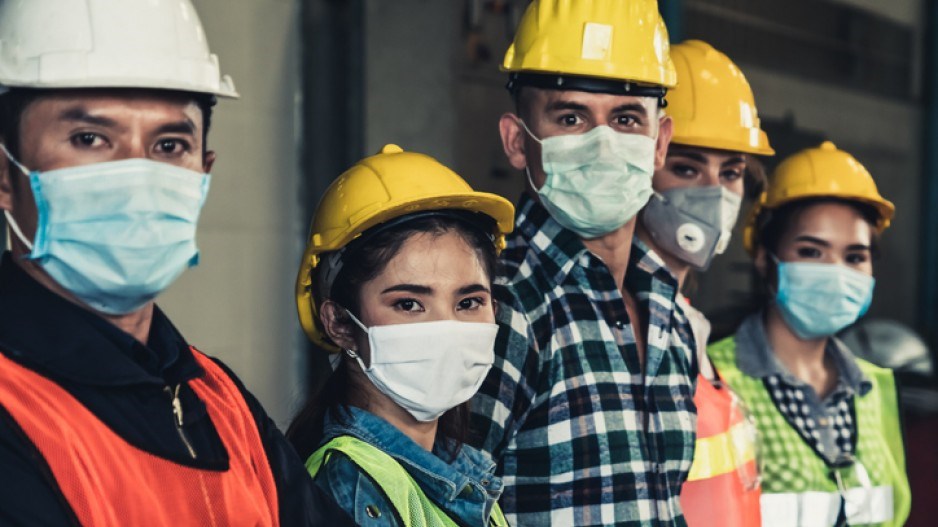Much like the province’s biggest universities, B.C.’s construction industry is taking its learning online in the midst of the pandemic.
The B.C. Construction Association said Thursday (May 14) the province’s social distancing orders are prompting it to move its anti-harassment, hazing and bullying training to a mobile app.
Last year the industry group launched a Builders Code, a code of conduct meant to dissuade behaviours such as demeaning or threatening language.
The new Builders Code app features 20 workplace scenarios in which safety or productivity could be compromised as a result of workers’ behaviour.
App users follow the scenarios and identify whether an action constitutes being “cool” or a “tool.”
The launch of the app comes as the B.C. construction sector increasingly looks to technology to address issues, such as social distancing, during the pandemic.
Last month Vancouver-based Salus Pro (Salus Technologies Inc.) began waiving subscription fees for its workplace safety software for the duration of the crisis.
Its mobile app allows employers to digitize their workplace safety systems, and includes COVID-19 self-assessment tools and workplace physical distancing guidelines.
Meanwhile, Proxxi Technology Corp., a Vancouver company making specialized wearables, revealed its own plans to use its technology to help social distancing on construction sites.
Its US$100 wristband devices talk to each other and deliver brief vibrations to wearers when they are in close proximity of others donning the bands.
CEO Campbell MacDonald told Business in Vancouver last month he estimates Proxxi will have 10,000 such devices ready to ship by mid-May and another 100,000 ready by the end of June.
“When people are tired or distracted or really hustling to get a job done, mistakes happen. We’re human,” he said.
In the event someone on the job site becomes a COVID-19 risk, data from the bands can be reviewed to determine if others came into close proximity with the at-risk individual.
The devices do not track movements on a job site and no sensitive employee data is kept on the bands.
“We’re looking to allow organizations that have essential workers to maintain social distancing,” MacDonald said.
“This will also help enable companies go back to work as regulations are relaxed but still require some social distancing in place, and then to enable on-demand contact tracing that will allow for a more intelligent triage [plan].”
British Columbians have undoubtedly witnessed throngs of construction workers piling into job sites amid the pandemic that prohibits large gatherings of more than 50 people.
The provincial orders do not apply to construction sites.
Victoria, however, offered guidance to the industry in late March, urging work sites to ensure no more than 50 people are in the same space and that workers should stay two metres apart “where possible.”




